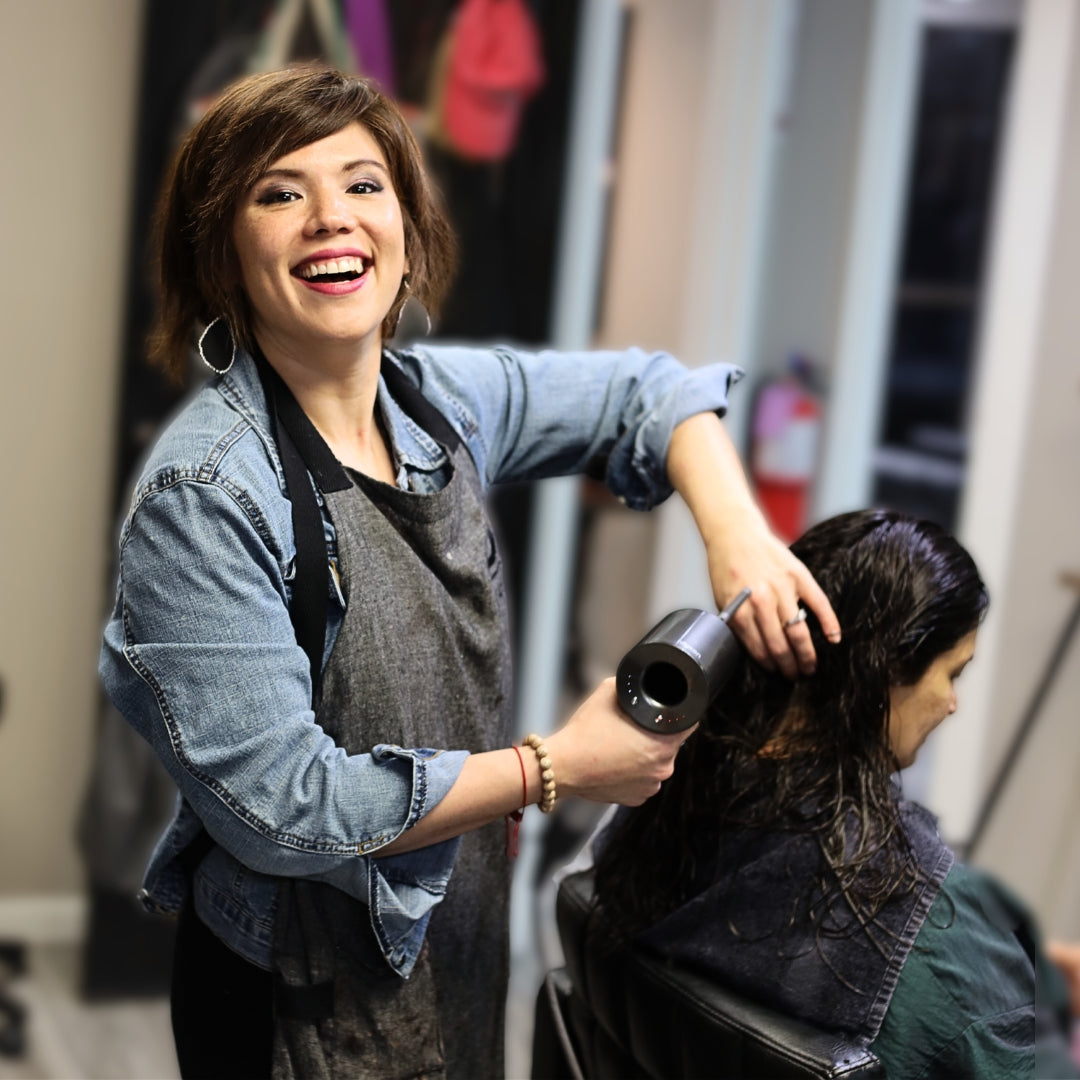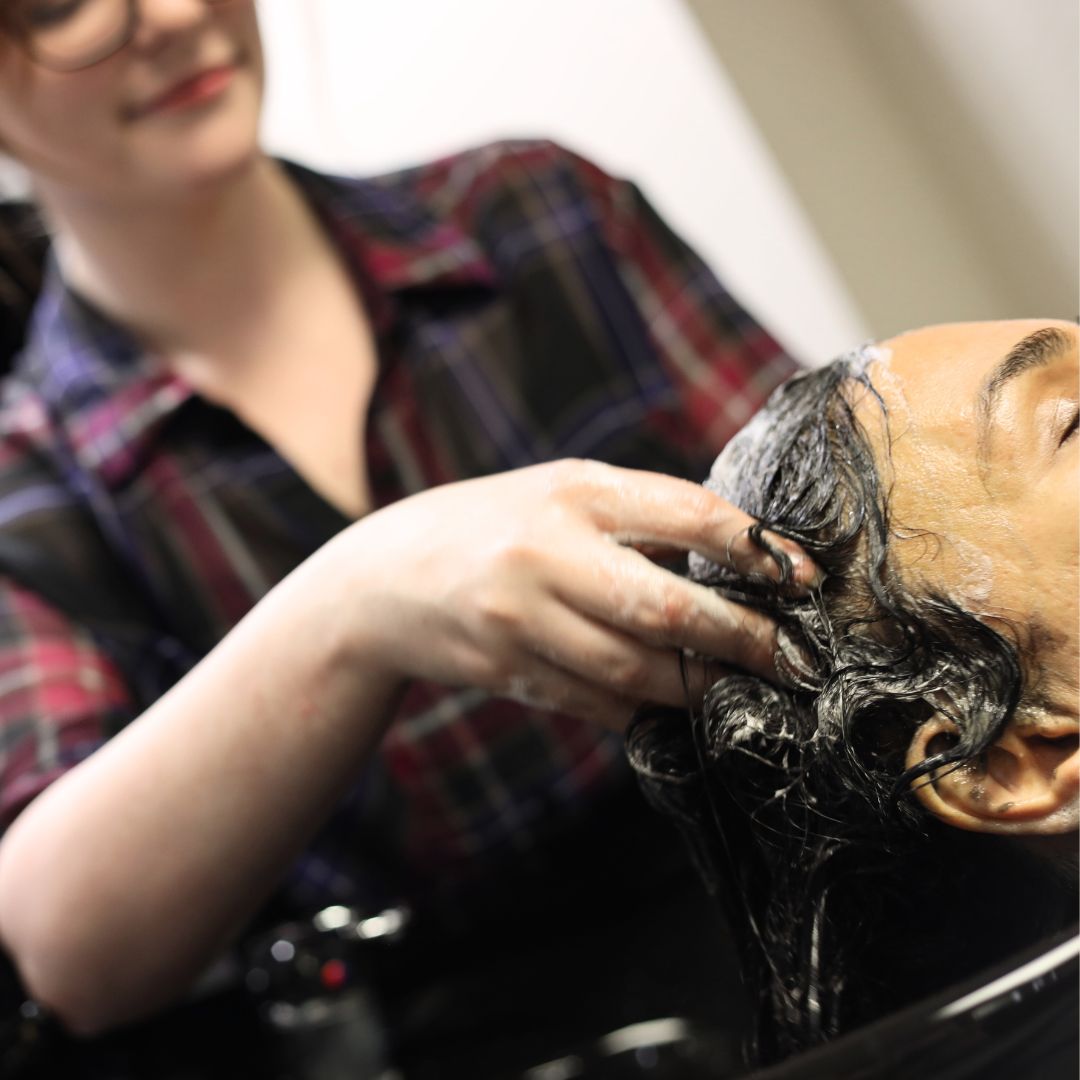If You Want Luxurious Hair, You CAN NOT Overlook an Oily Scalp

Having healthy, lustrous hair is a desire that most individuals share. However, achieving and maintaining beautiful hair can be a daunting task, especially when faced with an oily scalp. An oily scalp is a condition that occurs when the sebaceous glands in the scalp produce an excess amount of sebum. This excess oil can have a range of harmful effects on both the hair and scalp, ultimately impacting the overall health and appearance of your hair.
Common Causes of an Oily Scalp
Understanding the causes of an oily scalp is crucial in order to effectively address the issue. Hormonal imbalances, genetics, and even certain medications can contribute to excessive sebum production. Additionally, environmental factors, such as humidity and pollution, can also exacerbate an oily scalp. Poor hair hygiene, including infrequent washing or using harsh hair products, can further contribute to the problem. Identifying the underlying cause of your oily scalp is essential for effective treatment and management.
Pro Tip: Fortunately, since our stylists are “Hair Healers” v.s. simply “Hair Stylists”, we specialize in identifying the root issue (pun intended) of an oily scalp! Any time you come into the salon, we can use the Oway Tricho Derm. Just ask the next time you come in!
Click here to learn more!
The Harmful Effects of an Oily Scalp on Hair Health
An oily scalp can wreak havoc on the health of your hair. The excess sebum produced by the sebaceous glands can weigh down the hair strands, making them appear limp and lifeless. This can also make styling your hair a challenge, as it tends to lose its volume and shape quickly. Furthermore, the accumulation of oil on the scalp can clog hair follicles, leading to an increased risk of hair loss and thinning.
The Impact of an Oily Scalp on Scalp Health
Not only does an oily scalp affect the health of your hair, but it also has a significant impact on the overall health of your scalp. The excess oil can create a breeding ground for bacteria and fungi, leading to scalp infections and inflammation. This can result in itchiness, redness, and discomfort. Additionally, an oily scalp can disrupt the natural pH balance of the scalp, making it more susceptible to various scalp conditions, such as seborrheic dermatitis and scalp psoriasis. These conditions can cause flaking, irritation, and even open sores on the scalp.
The Connection Between an Oily Scalp and Dandruff

Dandruff, a common scalp condition characterized by dry, flaky skin, is often associated with an oily scalp. The excess oil produced by the sebaceous glands can create an environment that promotes the growth of Malassezia, a fungus responsible for dandruff. The combination of oil and dead skin cells on the scalp provides the perfect breeding ground for this fungus, leading to the formation of white or yellow flakes. Treating an oily scalp is crucial in addressing and managing dandruff, as the two conditions often go hand in hand.
Skin Issues Associated with an Oily Scalp
An oily scalp can extend its harmful effects beyond just the hair and scalp. The excess oil can transfer to the face and neck, leading to acne breakouts and skin congestion. The oil can clog pores and trap dirt and bacteria, resulting in blackheads, whiteheads, and pimples. Additionally, the constant contact of oily hair with the skin can cause irritation and inflammation, exacerbating existing skin conditions. Taking care of your scalp is not only essential for maintaining healthy hair, but also for promoting the overall health and clarity of your skin.
How an Oily Scalp Affects Hair Styling and Appearance
Styling your hair can become a challenging task when dealing with an oily scalp. The excess oil can make it difficult for hairstyles to hold, as the weight of the oil causes the hair to lose its shape and volume quickly. Additionally, the oil can make the hair appear greasy and dirty, even shortly after washing. This can have a negative impact on your overall appearance and self-confidence. Managing an oily scalp is crucial for achieving the desired hairstyle and maintaining a fresh and clean look throughout the day.
Treating and Managing an Oily Scalp
Fortunately, there are numerous ways to effectively treat and manage an oily scalp. The first step is to ensure proper hair hygiene by washing your hair regularly with a gentle shampoo specifically designed for oily scalps (Such as the Oway Purifying Hair Bath for oily scalps, _______ for dandruff, and the Sebum Hair Bath for oily scalp and hair. Avoiding the use of heavy or greasy hair products is also crucial, as they can further contribute to the oiliness. Incorporating a clarifying shampoo, such as our favorite, the Mailbu Un-Do-Goo Clarifying Shampoo, or scalp treatments into your hair care routine can help remove excess oil and impurities from the scalp. Additionally, it is important to maintain a balanced diet, rich in vitamins and minerals, to promote healthy hair and scalp.
Natural Remedies for an Oily Scalp
If you prefer natural remedies, there are several options to help control an oily scalp. Tea tree oil, known for its antifungal and antibacterial properties, can be added to your shampoo or diluted with a carrier oil and applied directly to the scalp. Witch hazel, a natural astringent, can be used as a scalp toner to help regulate oil production. Lemon juice, diluted with water, can be used as a rinse to remove excess oil and clarify the scalp. Additionally, incorporating a balanced diet, rich in fruits, vegetables, and omega-3 fatty acids, can help regulate sebum production and promote a healthy scalp.
Pro tip: It is important to do your research before going down this route. If the ratio of any the above is off, tea tree oil, witch hazel, and/or lemon juice can occasionally be too intense for the scalp.
Conclusion: Taking Care of Your Scalp for Healthy Hair

An oily scalp can have a range of harmful effects on both your hair and scalp. From limp and lifeless hair to scalp infections and dandruff, the consequences of an oily scalp are far-reaching. By understanding the causes and effects of an oily scalp, you can take the necessary steps to effectively treat and manage the condition. Whether through proper hair hygiene, the use of targeted hair care products, or natural remedies, taking care of your scalp is crucial for maintaining healthy, lustrous hair. Remember, a healthy scalp is the foundation for beautiful hair!



